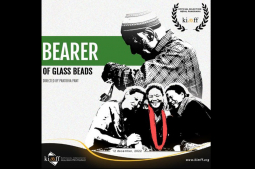
Zyzzyva. This odd little word may sound like a new clothing brand or Shakira's song lyrics, but it is neither of the two. “Zyzzyva” was included in the Oxford English Dictionary (OED) in 2017 and till now holds the record as the last word in the English language.
According to the OED, there are an estimated 171,146 active words in English language. English, however, is not the language which has the most number of words. According to Wikipedia, the Korean language has 1.1 million words followed by Turkish language which has more than 600,000 words and there are languages, like Arabic, which have as less as 32,000 words.
How many words do we know?
In fact we take language for granted and are not even aware of the number of words that we have already collected. We also don’t realize the number of words we actually use for our day-to-day communication. As a non-native speaker of the English language, I have always wondered about the number of English words that I need to know to be able to communicate in it fluently. But before that, let us see what an average person’s vocabulary size is. A blog (on https://wordcounter.io) mentions that in 2013, The Economist magazine published an article based on the research of the English language. The research showed the following interesting results on the two types of speakers, native and foreign:
Average adult native speakers (those who speak English as a first language) have the vocabulary of 20,000–35,000 words.
Average native speakers of 8 years already know 10,000 words.
For foreign speakers, the following results were:
The common vocabulary size for foreign speakers is 4,500 words.
Foreign speakers reach over 10,000 words by living abroad.
For vocabulary growth, reading fiction is as important as general reading.
How many words do we really use?
A blog called “How many words do I need to know” (on www.lingholic.com) mentions a book called “Green Eggs and Ham,” written by Dr Theodor Seuss Geisel, an American children’s author. This book has only 50 different words. The same author had earlier completed a book called “The Cat in the Hat” using only 225 words. I, myself, have not read these books but will definitely try to do so.
Now, if a book can be written with a combination of only 50 or 225 words, the question is, do we really need a vocabulary of 20,000 words to communicate.
An article (on www.lingholic.com) mentions the following interesting facts:
The first 25 words are used in 33% of everyday writing,
The first 100 words are used in 50% of everyday writing,
And the first 1,000 words are used in 89% of everyday writing.
A vocabulary of just 3,000 words provides coverage for around 95% of a common language.
Let’s see the math
Now going back to the total number of words in the OED, we have 171,476 words in current use, whereas a vocabulary of just 3,000 words provides coverage for around 95% of a common language. That is simply 1.75% of the total number of words in use! By knowing 1.75% of the English dictionary, you will be able to understand 95% of what you read.
Knowing the right words
A blog (on https://www.optilingo.com) says that learning the right words in the right order will help more than simply trying to learn more new words. Since we have seen that about 95% of everyday conversations come from only 3,000 words, it makes sense to first learn those 3,000 commonly used words rather than learn 3,000 words at random.
Conclusion
We can conclude that there is no exact answer to the question of how many words you need to know to be fluent in communication. I also think that you don’t need to count the number of words you learn. Instead, learning the most commonly used words first and slowly collecting other words by experience is the easiest way to learn a new language. Now, when I look at the numbers which I have mentioned here, I am quite excited. I actually don’t know how many English words I’ve learnt by now, but I’m sure that I must have crossed the 3,000 mark.
Now coming back to “Zyzzyva”. For those of us who haven’t used the word till now, it’s a noun, pronounced “zih-zih-vah” and is the name of a beetle found in South America that lives on palm trees and is generally small and a herbivor.






Leave A Comment